Berita
Home > News
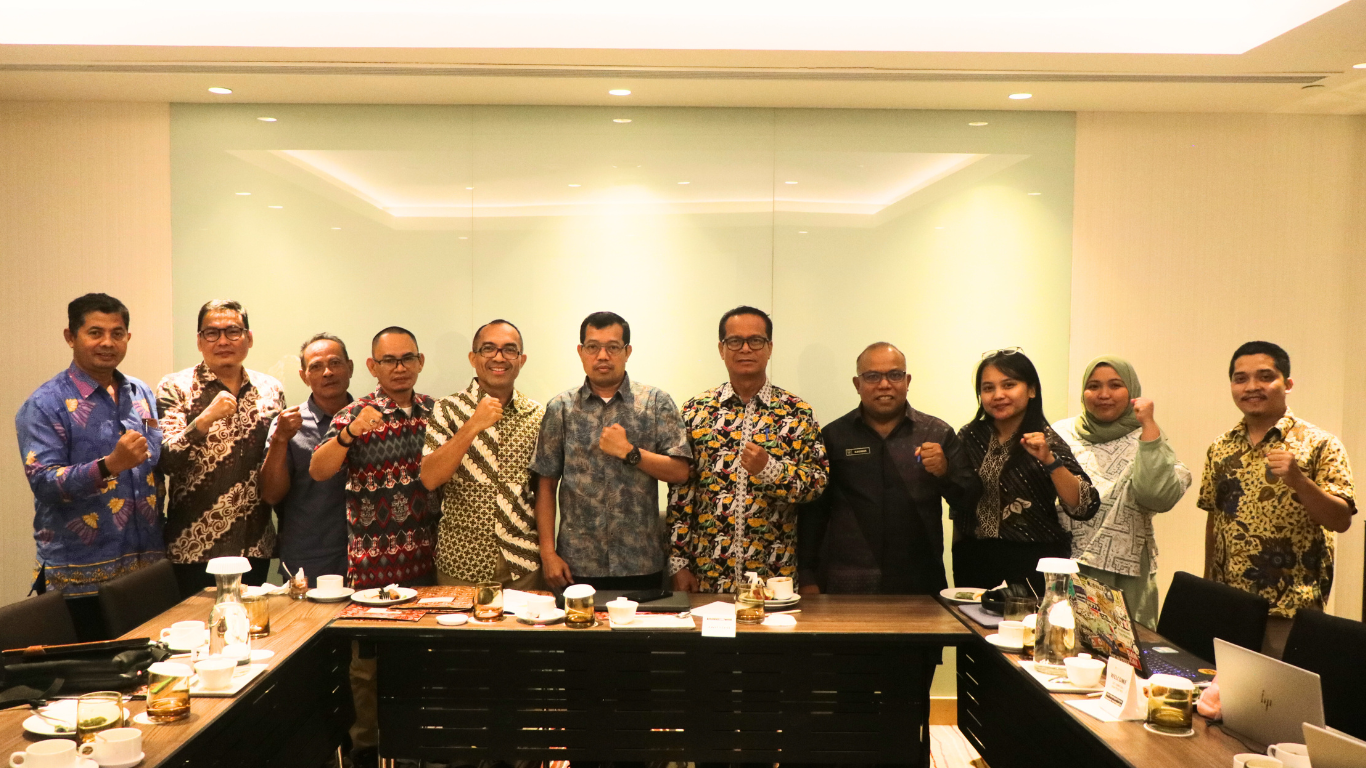
Newsletter – Seruyan’s Jurisdictional Certification Updates
Greetings from the Seruyan Jurisdictional Certification Secretariat,
The year 2024 marks a significant milestone in the journey of Jurisdictional Approach to Certification in Seruyan District. Through various initiatives, we continue to strive for sustainable oil palm management in the district, including drafting regulations on conflicts preventions and protecting the rights of indigenous communities.
We have actively supported the mapping plantation concession areas, as well as developing data-driven monitoring mechanisms. We hope this update will provide you with new insights and strengthen our collaboration toward achieving shared goals in the district.
For more details, read the first edition of Seruyan’s Jurisdictional Certification Updates Newsletter and its summary here.
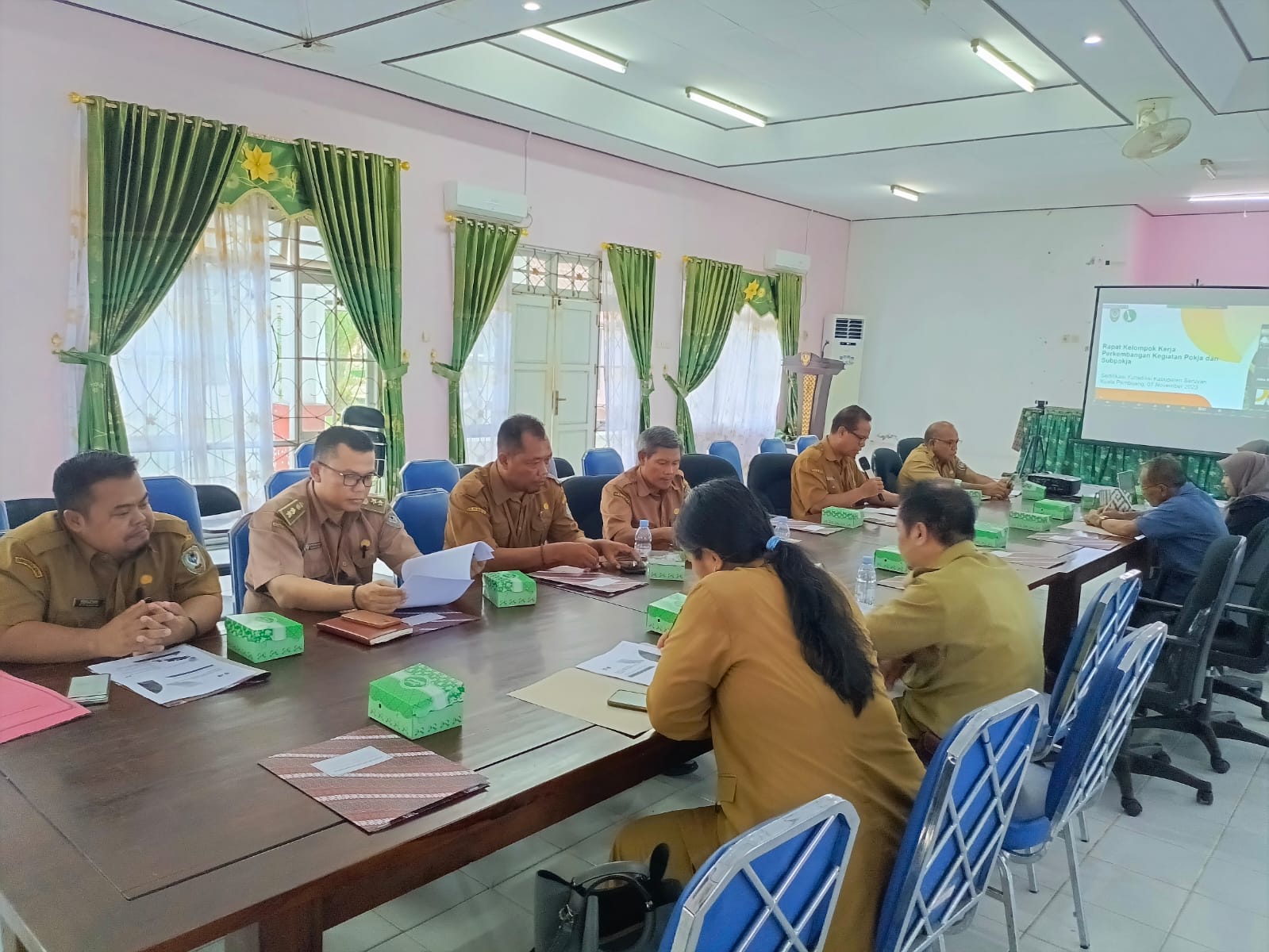
Ordinary Meeting of the Jurisdiction Certification Working Group in 2023
The Working Group is a forum for providing updated information on the performance of Sub Working Groups I (NKT/SKT), II (social conflict), and III (farmer empowerment). This year’s Pokja (Working Group) meeting was held on November 7 2023, inviting the Regional Government and multi-stakeholders of Seruyan Regency with the theme “Strategies for Preventing the Impact of El Nino in Seruyan Regency”. The El Nino issue is no longer foreign to society. The impact of El Nino is a drought which causes potential crop failure and impacts food security in Seruyan Regency.
Based on information from the Head of the Food Security and Agriculture Service, Mr. Albidinnor, said that Seruyan Regency is still quite safe from the impact of El Nino because not all spots experience extreme drought and there is still rain in some places. To maintain food security and drought which can trigger fires from the impact of El Nino, the Seruyan Regional Government is implementing several mitigation alternatives, namely by providing cheap markets for food security stability and training in KTPA (Fire Care Farmers Group) and MPA (Fire Care Community). Currently, the Seruyan Regional Government needs to prepare a climate and El Nino calendar for Seruyan Regency as a strategy to prevent the impact of El Nino in the future.
The Working Group meeting at the end of this year is one of the Regional Government’s homework assignments in completing the 2023 target to prepare plans for 2024. The Seruyan Regional Government is committed to accelerating the formation of several regulations that regulate topical concerns in the three sub-working groups such as the Draft Regional Regulation on PPA in the plantation sector, the Draft Regional Regulation on Worker Protection, and Technical guidelines/technical guidelines for data collection, prevention and resolution of conflicts. Everything will be contained in the Seruyan Regency Sustainable Palm Oil Regional Action Plan.
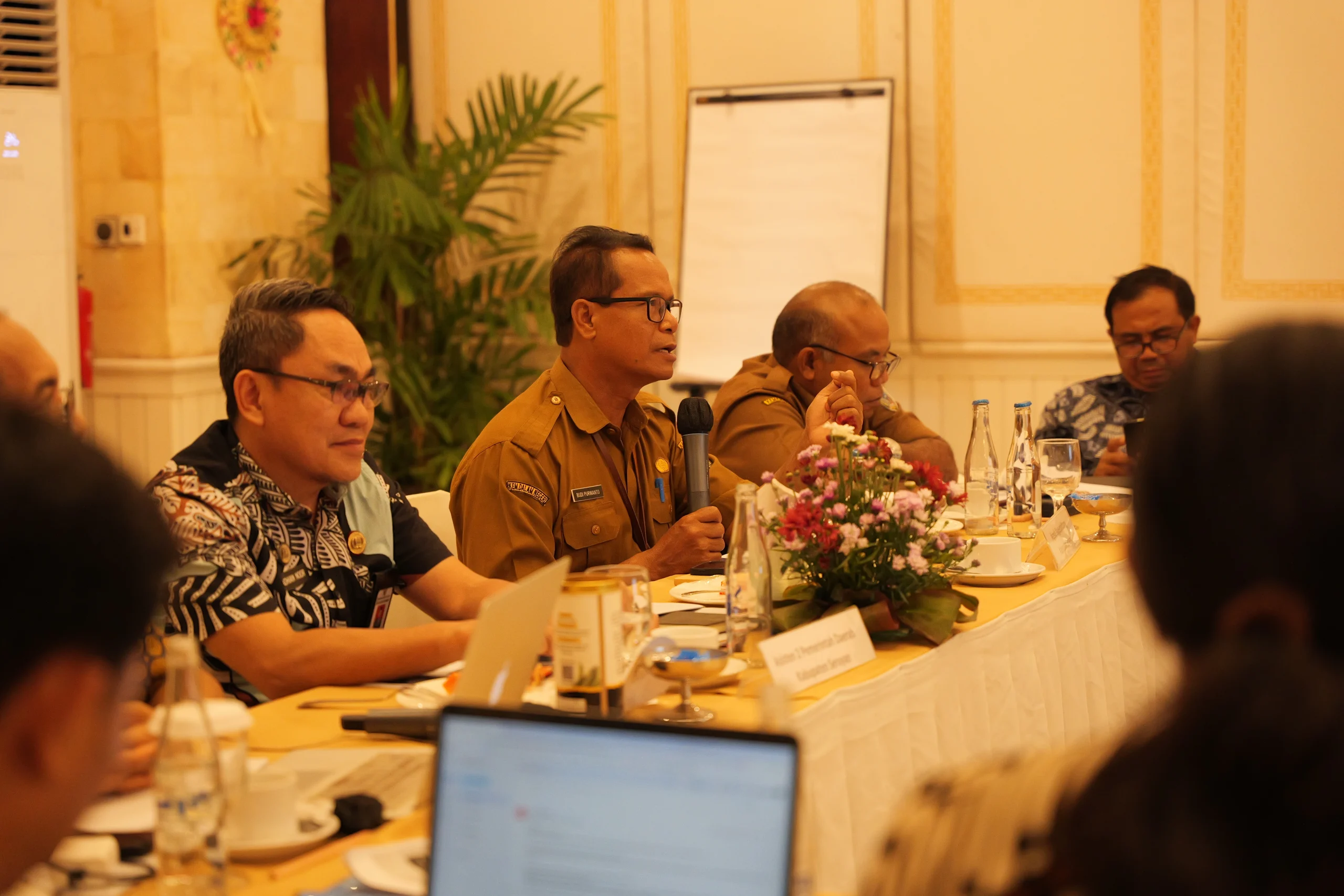
Response to the Press Conference Titled “Jurisdictional Certification in Seruyan, for Whom?”
On 13 November 2024, a coalition of civil society organizations (CSOs) namely WALHI Central Kalimantan, Progress, Save Our Borneo, YBBI, YMKL, LBH Palangkaraya, and TuK Indonesia, held an online press conference entitled “Jurisdictional Certification in Seruyan, for Whom?”
We, from the Seruyan District Government, consider it is necessary to respond to this press conference as a way to uphold the transparency and accountability that the Seruyan District Government upholds regarding the issue being brought forward. Our response is presented in three parts. First, to provide clarity on the concept of jurisdictional approach. Second, preventing greenwashing. Third, on conflict resolution.
Firstly, on Jurisdictional Approach
The jurisdictional approach in Seruyan District began in 2015. The initiative was driven by the Head of District’s (Bupati) vision to establish a set of enabling conditions at the jurisdictional level to allow oil palm growers in Seruyan to transition toward sustainable practices. The existing approach that is considered able to cater to this vision is the Jurisdictional Approach initiated by the Roundtable on Sustainable Palm Oil (RSPO), which has been adapted to comply with the Indonesian regulations.
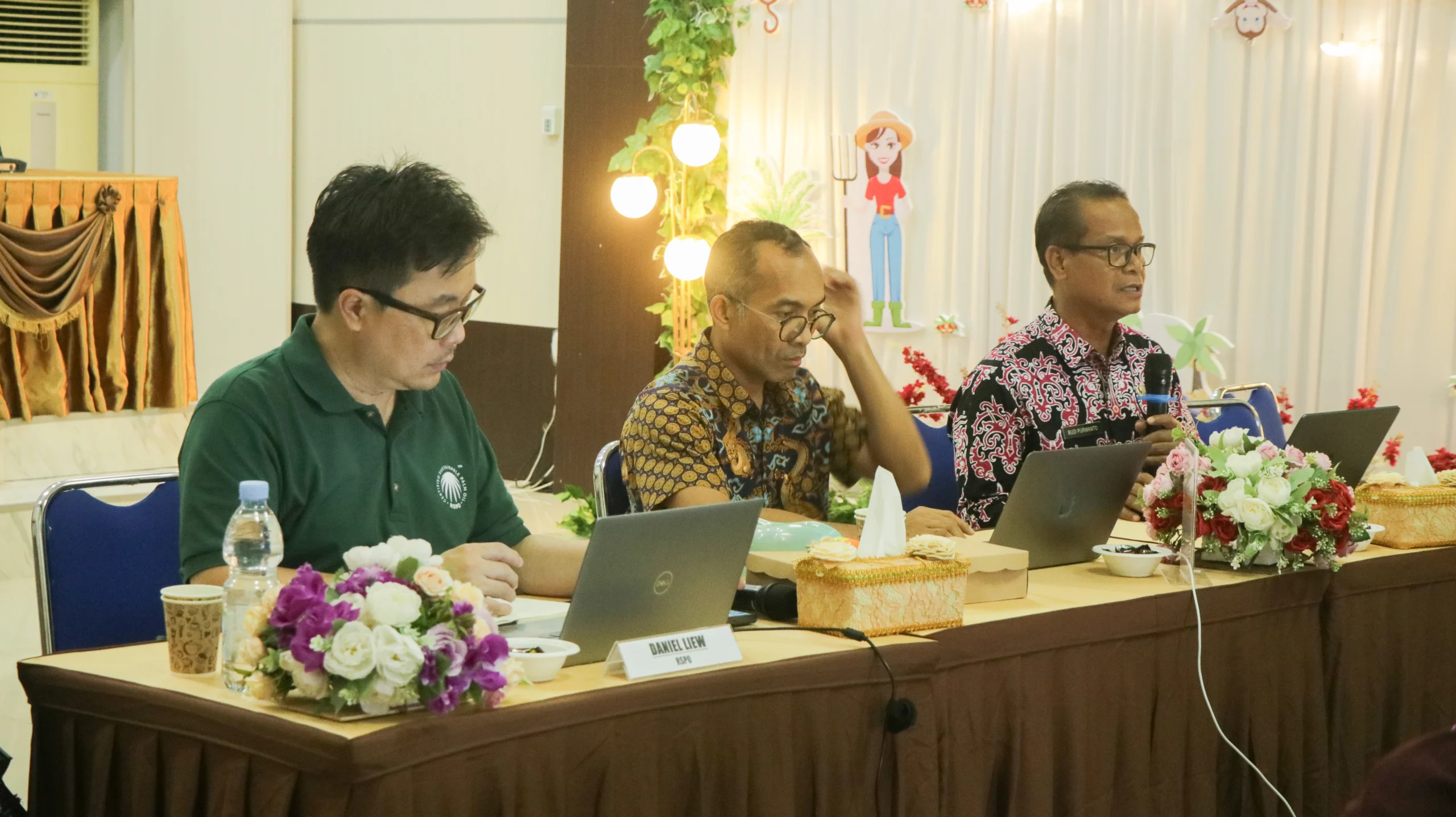 The fundamental pillars of this approach are the multi stakeholder processes, stepwise approach, and alignment with the national regulatory framework. Within the multistakeholder forum, the Seruyan District Government involves all oil palm industry actors, including CSOs/NGOs and farmers. Organizations such as HCV Network, CNV Internationaal, Kaleka, Forest Peoples Programme (FPP), the Oil Palm Farmers Union (Serikat Petani Kelapa Sawit/SPKS), and the Foundation for Sustainable Forest Communities (Yayasan Masyarakat Kehutanan Lestari/YMKL) participate as CSO representatives.
The fundamental pillars of this approach are the multi stakeholder processes, stepwise approach, and alignment with the national regulatory framework. Within the multistakeholder forum, the Seruyan District Government involves all oil palm industry actors, including CSOs/NGOs and farmers. Organizations such as HCV Network, CNV Internationaal, Kaleka, Forest Peoples Programme (FPP), the Oil Palm Farmers Union (Serikat Petani Kelapa Sawit/SPKS), and the Foundation for Sustainable Forest Communities (Yayasan Masyarakat Kehutanan Lestari/YMKL) participate as CSO representatives.
On the farmers’ side, the forum also includes KUD Sawit Jaya, Koperasi Sawit Bangkit, Asosiasi Petani Kelapa Sawit Bahalap (APKSB) Seruyan, Asosiasi Petani Pekebun Kelapa Sawit (APPKS), and plasma cooperatives such as Koperasi Bengkirai Jaya Makmur, Koperasi Citra Asam Baru, and Koperasi Karya Maju Bersama.
A stepwise approach means this method follows a gradual process based on the completed requirements needed within each step. This means that it does not immediately certify all oil palm growers in Seruyan.
Through this step-by-step process, requirements must be met both by the District Government, through the provision of regulations, and by oil palm growers, who must adhere to sustainability principles and criteria (P & C). The development of P & C is still underway, therefore Seruyan cannot yet publicly declare the effectiveness of the established P & C.
Secondly, Preventing Greenwashing
The stepwise approach is a process that ensures all requirements are met and intended to address concerns about greenwashing. Apart from it being an issue highlighted in the press release by the CSO coalition, greenwashing had also been discussed at the Seruyan District Government level. As a result, the District Government aims to carefully implements this initiative through a stepwise approach.
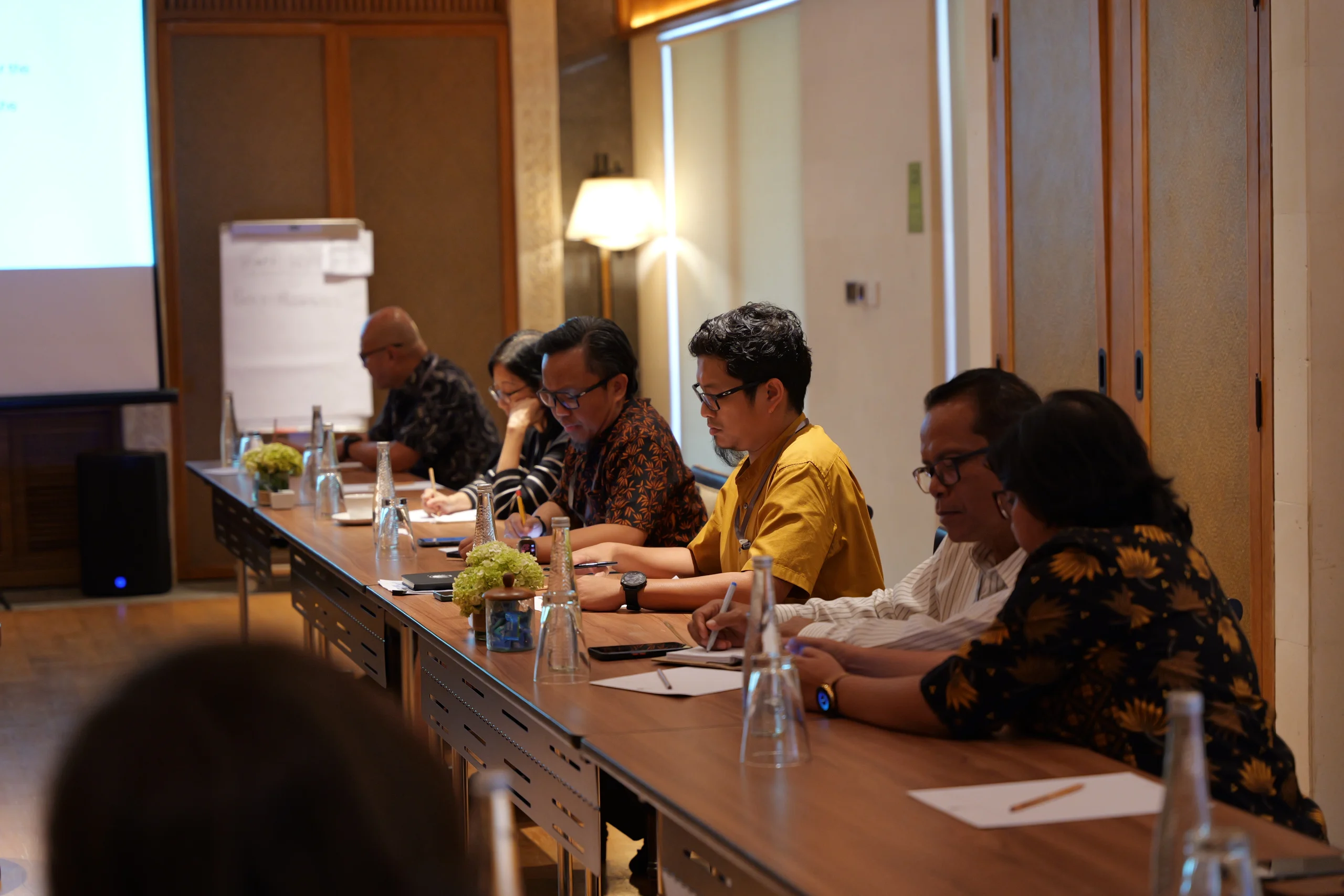 In summary, there are four main stages in the jurisdictional approach. The first step is establishing a declaration of commitment to set sustainability targets. The second step is to prepare institutional and regulatory frameworks by establishing the necessary regulations and institutional support for the jurisdictional approach, including laws and a legal entity for the jurisdiction. According to the RSPO guidelines, the jurisdictional entity will serve as the certification unit. The third step is to implement established regulations and apply the certification principles and criteria to members who wish to become certified. The fourth step involves audits and issuing certifications.
In summary, there are four main stages in the jurisdictional approach. The first step is establishing a declaration of commitment to set sustainability targets. The second step is to prepare institutional and regulatory frameworks by establishing the necessary regulations and institutional support for the jurisdictional approach, including laws and a legal entity for the jurisdiction. According to the RSPO guidelines, the jurisdictional entity will serve as the certification unit. The third step is to implement established regulations and apply the certification principles and criteria to members who wish to become certified. The fourth step involves audits and issuing certifications.
It should be noted that Seruyan had just reached Step 1 and has recently undergone the evaluation process for Step II. In preparation for Step II, the Seruyan District Government has established several supporting regulations, including:
- District Regulation No. 5 of 2024 on the Recognition and Protection of Indigenous Peoples;
- Head of District Regulation No. 11 of 2021 concerning Procedures for Complaints and Management of Data on Conflicts in Plantation Businesses;
- Head of District Regulation No. 29 of 2022 on Regional Action Plan for Sustainable Oil Palm (RAD KSB) 2022-2024;
- Head of District Regulation No. 48 of 2022 concerning Oil Palm Plantation Conflicts Resolution Guidelines;
- Head of District Regulation No. 49 of 2022 on the Guidelines for the Determination and Management of Areas with High Conservation Value;
- Head of District Decree on 188.45/211/2022 on the Data Collection Team for Oil Palm Cultivators in the Forest Areas of Seruyan District.
Several other regulations are in the process of being drafted and will be finalized, including regulations on the protection of women and children, FPIC (Free, Prior, and Informed Consent), protection of workers, and the protection of human rights defenders. These regulations form a new framework in supporting the District Government and all stakeholders in the District toward sustainable palm oil.
Regarding concerns about greenwashing, we ensure that Step III (the implementation of regulations) and Step IV (certification) will only proceed once all required regulations have been enacted and the Jurisdictional Entity is fully operational.
Currently, the Seruyan District Government is inviting growers to participate in the Jurisdictional Entity. Those who are willing to join may choose their membership type within the Entity, either as certified or non-certified members.
Not all growers in Seruyan have joined the Jurisdictional Entity, and not all are willing to become certified members. To date, only five growers and two farmer associations have committed to becoming certified members.
These members will undergo the certification process under the Entity and implement the principles and criteria established by RSPO. Non-certified members on the other hand, do not undergo certification under the Entity as they consist of CSOs and/or growers that are already RSPO-certified.
The Jurisdictional Entity itself is not yet operational. It should be emphasized that this approach is not intended to simultaneously certify all oil palm growers in Seruyan.
Through a stepwise process, this approach aims to prevent greenwashing by growers that do not yet comply with sustainability standards. At the same time, the enforcement of regulations at the District level will provide enabling conditions for Seruyan to address systemic issues at the jurisdictional level.
Thirdly, on Conflict Resolution
Conflict Resolution is the duty and responsibility of the Seruyan District Government together with other stakeholders, and is recognized as an essential enabling condition in the jurisdictional approach. The process for conflict resolution began with step-by-step data collection and mediation efforts.
Several conflicts have been addressed through mediation, including cases raised in the press release by the CSO coalition while several conflicts are still being identified as resolving them require considerable time, funding, and human resources.
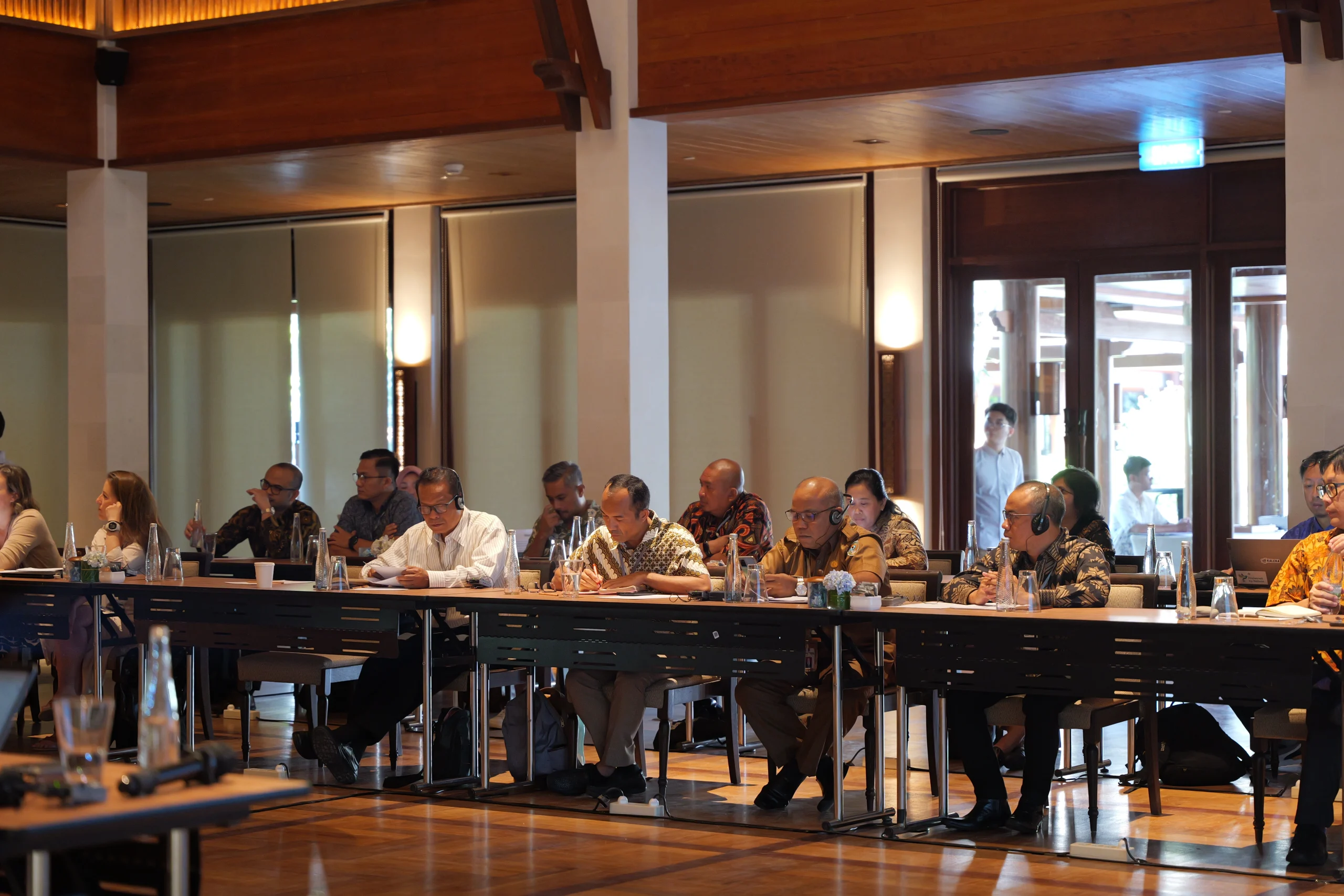 Regarding the concerns raised by the CSO coalition about the reported cases, Seruyan shares these concerns and is designing preventive measures to ensure these cases will not recur in the future. The victims and their families are part of the Seruyan community. The Seruyan District Government has taken systemic steps to prevent similar cases from happening again, including establishing regulatory frameworks, complaint systems, and conflict resolution mechanisms.
Regarding the concerns raised by the CSO coalition about the reported cases, Seruyan shares these concerns and is designing preventive measures to ensure these cases will not recur in the future. The victims and their families are part of the Seruyan community. The Seruyan District Government has taken systemic steps to prevent similar cases from happening again, including establishing regulatory frameworks, complaint systems, and conflict resolution mechanisms.
Should CSOs wish to contribute their expertise, provide resources, and offer solutions, the Seruyan District Government welcomes their participation in finding joint solutions, particularly within the Jurisdictional Certification Working Group.
The Seruyan District Government acknowledges that we cannot work alone in resolving conflicts. We recognize our limited capacity to develop and implement solutions that are realistic and actionable, though these may not always satisfy all parties.
We believe there is no perfect resolution model for all problems. Therefore, through the jurisdictional approach, we invite all parties to engage in dialogue and work together to find solutions. The Seruyan District Government acknowledges its shortcomings. Through this platform, we hope to gather valuable input toward achieving sustainable plantation practices in Seruyan
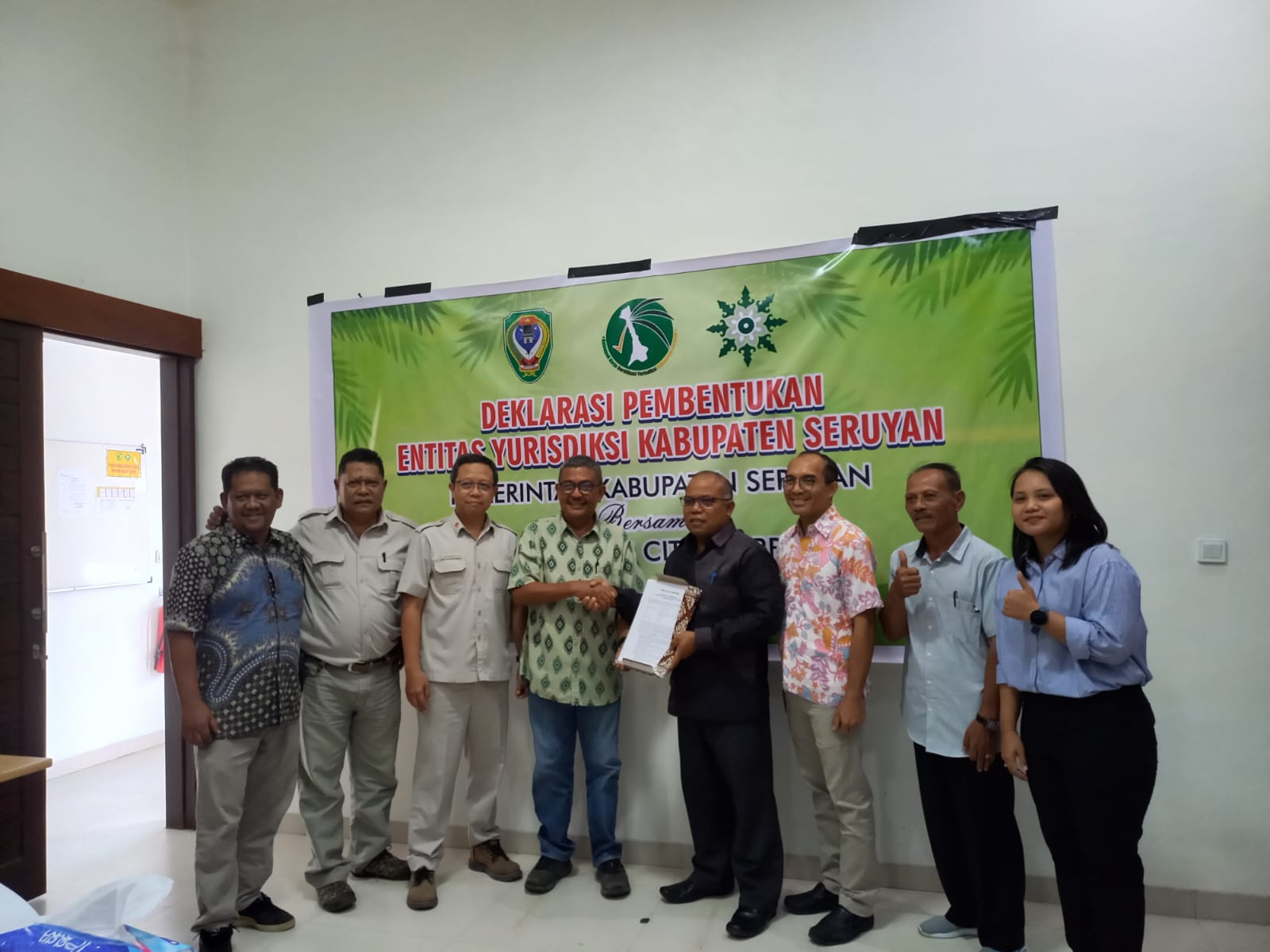
The Seruyan Regency Government, together with Musirawas Group, declares participation in the formation of Jurisdictional Entity
On Thursday, November 2, 2023, the Seruyan Regency Government, together with Musirawas Group, held an audience meeting to encourage the participation and commitment of Musirawas as one of the pioneers in forming the Jurisdictional Entity. The Jurisdictional Entity is a legally recognized unit consisting of oil palm industry stakeholders. In the future, the Jurisdictional Entity will be certified by certification bodies and implement sustainability standards at the regency level.
During the meeting, attended by the Director and staff members, PT Musirawas Citra Harpindo and PT Sumur Pandanwangi explicitly declared their involvement in joining the formation of the jurisdictional entity in Seruyan Regency. The agreements reached include:
- The name of the jurisdictional entity in Seruyan Regency is the Association of Oil Palm Business Actors Gawi Bapakat Seruyan Regency.
- The governance of the implementation of the Association of Oil Palm Business Actors Gawi Bapakat Seruyan Regency will be determined at a later date, referring to the RSPO jurisdictional entity documentation and the participation of all members.
- Members of the Association of Oil Palm Business Actors Gawi Bapakat Seruyan Regency are subject to the rules governing the certification of the Seruyan Regency jurisdiction, as well as the principles and criteria of RSPO sustainable palm oil certification.
This marks the initial step by the Seruyan Regency Government and oil palm industry stakeholders to form a unit and establish organizational governance, aiming to realize the shared vision of Jurisdiction-Based Palm Oil Certification.
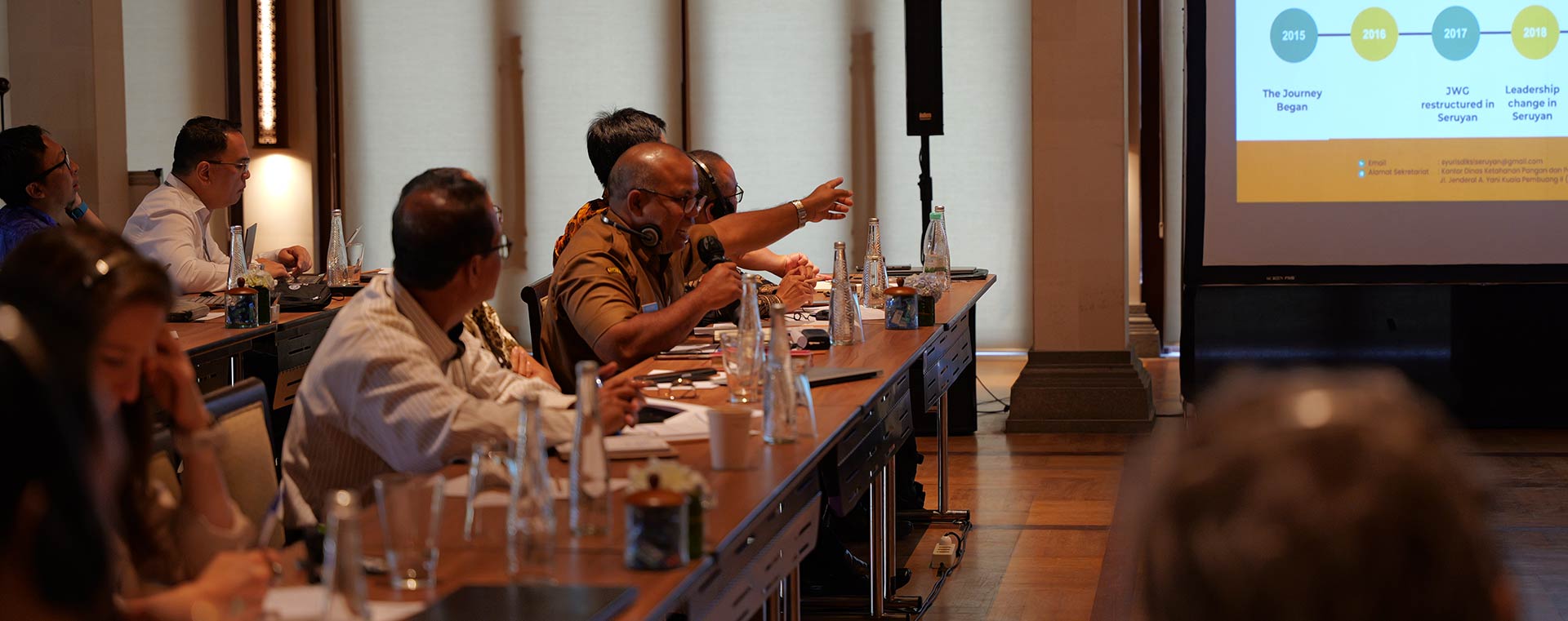
Seruyan Receives Recognition for Fulfilling Stage 1 of the RSPO Jurisdictional Approach
Seruyan Regency is one of the three pilot jurisdictions for the RSPO approach. Since 2014, the Seruyan Regency Government has been committed to and actively promoting sustainable oil palm management.
